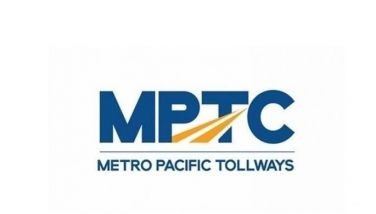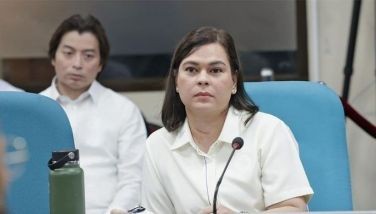Climate change adaption hinges on sustainability, resilience – study
MANILA, Philippines — The Philippines must pursue a different path to strengthen its contribution to the Paris Agreement – one that is anchored on climate change adaptation and resilience, and which finds context in sustainable development, instead of the usual green house gas (GHG) inventory-centric approach, a study showed.
In a paper presented during a recent virtual forum organized by think tank Stratbase ADR Institute, it was argued that the necessary first step for strengthening and accelerating climate action in the Philippines would be to “return to the first principle of adaptation as the anchor strategy, pursuing mitigation as a function of adaptation, with programs and measures driven by their impact on sustainable development and not by emissions reductions per se.”
Toby Melissa Monsod, a professor at the School of Economics of the University of the Philippines and a co-author of the study, said adaptation is the anchor strategy meant to be translated for all levels of governance toward ecosystem-based management which shall ultimately render sectors climate resilient.
“Robust community ownership of climate action, a necessary condition for any successful pursuit of climate-smart low-carbon development, will follow more easily from dedicated investments and targeted market interventions to build local resilience; the same cannot be said for campaigns to reduce GHG emissions,” she said.
The selection of measures for nationally determined contributions (NDCs) would not start with an accounting of GHG emissions, but end with it, making emissions reduction a co-benefit rather than a criteria for inclusion, Monsod said.
She pointed out that 60 percent of the population live in coastal zones and about 10 million rely on small-scale fishing for their food.
Despite this, and despite the role in human survival and the quality of life, the marine economy has received scant attention from the national government.
“The bias of public investments has been in the agri sector, which it is a part, has always been in crops, specifically rice. Thus, the degradation of coral reefs due to siltation, destructive fishing practices, overharvesting, etc. Even plastic pollution which has contributed to the decline in productivity and is threatening life,” she said.
But the degradation of coastal ecosystems is of particular concern, given their multiple roles, especially in the mitigation and adaptation of climate change.
“Prioritizing resilience can open up previously missed opportunities to significantly contribute to global efforts based on the country’s comparative advantage – for instance, the biodiversity of its seas.
Stratbase ADRI president Dindo Manhit said that environmental challenges like global warming have undermined the country’s capacity to respond to crises and emergencies.
“This affects the security of states and the welfare of our people. This underscores the importance of fostering cooperation to address these emerging challenges with the same urgency as conventional security threats.”
Renato Redentor Constantino, executive director of the Institute for Climate and Sustainable Cities, said climate change would worsen the impact of the pandemic.
“GNP and GDP are not the only measures of progress,” he said. “It is time to establish resilience at the center of macroeconomics, and it is also time to establish ways to measure how resilient we are.”
“Climate action strategies need to be a part of a larger transition strategy focused on sustainable, inclusive, and resilient economic strategy,” he said.
We need to stop looking at climate change as an environmental problem, he said. We should stop our fixation on disasters.
“We must also look at local hunger, poverty incidence, forest fires, slow onset climate effects if these will have an impact in the future. We need to look at how we deliver responsive services, and how our different tiers in government will respond to our situation,” he said.
Constantino said the government must prioritize multi-model public transportation programs, and chase affordable, reliable and secure power.
- Latest
- Trending





























